 Copernicus was a church canon, physician, and economist, but his most important work was in the field of astronomy. He developed the heliocentric theory of the universe that placed the Sun, not the Earth, at the center of our solar system and helped launch a scientific revolution. Though Copernicus conceived his revolutionary model of planetary motion by 1530, his treatise on the subject did not see print until he was on his deathbed in 1543. What heliocentric hypotheses preceded Copernicus’s? Discuss
Copernicus was a church canon, physician, and economist, but his most important work was in the field of astronomy. He developed the heliocentric theory of the universe that placed the Sun, not the Earth, at the center of our solar system and helped launch a scientific revolution. Though Copernicus conceived his revolutionary model of planetary motion by 1530, his treatise on the subject did not see print until he was on his deathbed in 1543. What heliocentric hypotheses preceded Copernicus’s? Discuss
Source: The Free Dictionary
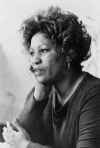 Morrison is an African-American writer and former editor for Random House whose work helped bring African-American literature into the mainstream. In 1988, she won the Pulitzer Prize for Beloved, which is now included in the canon of American literature, and she was awarded the Nobel Prize in Literature in 1993. Her fiction is noted for its poetic language, lush detail, and emotional intensity. Why did she call Bill Clinton “our first Black president”?
Morrison is an African-American writer and former editor for Random House whose work helped bring African-American literature into the mainstream. In 1988, she won the Pulitzer Prize for Beloved, which is now included in the canon of American literature, and she was awarded the Nobel Prize in Literature in 1993. Her fiction is noted for its poetic language, lush detail, and emotional intensity. Why did she call Bill Clinton “our first Black president”? 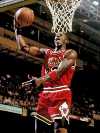 Considered by many to be the greatest basketball player of all time, Michael Jordan ended his career with a regular-season scoring average of 30.1 points per game, the highest in NBA history. He won six NBA championships, was league MVP five times, and earned two Olympic gold medals. Jordan’s mid-air acrobatics and slam dunk skills are legendary and earned him the nickname “Air Jordan.” After retiring from basketball in 1993, Jordan surprised fans by beginning a career in what sport?
Considered by many to be the greatest basketball player of all time, Michael Jordan ended his career with a regular-season scoring average of 30.1 points per game, the highest in NBA history. He won six NBA championships, was league MVP five times, and earned two Olympic gold medals. Jordan’s mid-air acrobatics and slam dunk skills are legendary and earned him the nickname “Air Jordan.” After retiring from basketball in 1993, Jordan surprised fans by beginning a career in what sport? 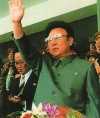 Despite rumors that he masterminded several terrorist bombings in the 1980s, Kim Jong-Il succeeded his late father as ruler of North Korea in 1994 and remained in power until his death in 2011. Although Kim took steps to improve international relations early in his rule, the country’s continued pursuit of nuclear weapons technology soured its dealings with the West. Kim had a reputation for personal extravagance. What are some examples that have been cited as evidence of his excesses?
Despite rumors that he masterminded several terrorist bombings in the 1980s, Kim Jong-Il succeeded his late father as ruler of North Korea in 1994 and remained in power until his death in 2011. Although Kim took steps to improve international relations early in his rule, the country’s continued pursuit of nuclear weapons technology soured its dealings with the West. Kim had a reputation for personal extravagance. What are some examples that have been cited as evidence of his excesses?  Galileo was a Tuscan astronomer, philosopher, and physicist whose technological advances and scientific investigations greatly enhanced humanity’s knowledge of the universe. Though his work is today considered crucial to the development of the modern scientific method, the Catholic Church of the 17th century tried him for heresy and forced him to abjure his findings. When did the Catholic Church finally reverse its position on Galileo and publicly declare that it had been in the wrong?
Galileo was a Tuscan astronomer, philosopher, and physicist whose technological advances and scientific investigations greatly enhanced humanity’s knowledge of the universe. Though his work is today considered crucial to the development of the modern scientific method, the Catholic Church of the 17th century tried him for heresy and forced him to abjure his findings. When did the Catholic Church finally reverse its position on Galileo and publicly declare that it had been in the wrong?  Horkheimer was a German philosopher and sociologist and played an important role in the development of critical theory and Western Marxism. In Eclipse of Reason and Dialectic of Enlightenment, he developed a critique of scientific positivism, and his ideas about liberation and consumer society continue to influence contemporary empirical sociologists. What did Horkheimer believe to be the cause of the ills of modern society?
Horkheimer was a German philosopher and sociologist and played an important role in the development of critical theory and Western Marxism. In Eclipse of Reason and Dialectic of Enlightenment, he developed a critique of scientific positivism, and his ideas about liberation and consumer society continue to influence contemporary empirical sociologists. What did Horkheimer believe to be the cause of the ills of modern society? 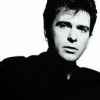 Gabriel is an English singer and songwriter who first rose to fame as the lead vocalist and flutist of the progressive rock group Genesis. In the 1970s and 80s, he became an influential solo artist, producing music videos with groundbreaking special effects and writing the soundtrack for Martin Scorsese’s The Last Temptation of Christ. What song did Gabriel perform at the opening ceremonies of the Winter Olympics in Torino, Italy, on February 10, 2006?
Gabriel is an English singer and songwriter who first rose to fame as the lead vocalist and flutist of the progressive rock group Genesis. In the 1970s and 80s, he became an influential solo artist, producing music videos with groundbreaking special effects and writing the soundtrack for Martin Scorsese’s The Last Temptation of Christ. What song did Gabriel perform at the opening ceremonies of the Winter Olympics in Torino, Italy, on February 10, 2006?  Darwin was an English naturalist who developed the modern theory of evolution. Along with naturalist Alfred Russel Wallace, he proposed the principle of natural selection: the mechanism by which advantageous variations are passed on to later generations and less advantageous traits slowly disappear. Darwin’s intensely controversial theory of evolution aroused widespread argument and debate among scientists and religious leaders. How did Darwin view religion and God?
Darwin was an English naturalist who developed the modern theory of evolution. Along with naturalist Alfred Russel Wallace, he proposed the principle of natural selection: the mechanism by which advantageous variations are passed on to later generations and less advantageous traits slowly disappear. Darwin’s intensely controversial theory of evolution aroused widespread argument and debate among scientists and religious leaders. How did Darwin view religion and God? 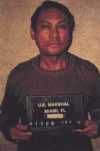 Noriega was a Panamanian general and the country’s de facto military leader from 1983 to 1989. A one-time operative for the CIA, he was implicated in drug trafficking, the sale of US secrets to Cuba, and other illegal activities. Following the murder of a US marine on the streets of Panama City, Noriega was captured and brought to America to stand trial for drug trafficking, racketeering, and money laundering. What other countries have convicted Noriega of crimes in absentia?
Noriega was a Panamanian general and the country’s de facto military leader from 1983 to 1989. A one-time operative for the CIA, he was implicated in drug trafficking, the sale of US secrets to Cuba, and other illegal activities. Following the murder of a US marine on the streets of Panama City, Noriega was captured and brought to America to stand trial for drug trafficking, racketeering, and money laundering. What other countries have convicted Noriega of crimes in absentia?  During the 1972 Summer Olympic Games in Munich, Germany, Jewish-American swimmer Mark Spitz shot to sporting fame when he captured seven gold medals, a feat unequaled by any other athlete in a single Olympiad until 2008. Spitz also set new world records for each of the events in which he took the gold. Having thus brought his total Olympic medal count up to 11—he had won two gold, one silver, and one bronze in 1968—Spitz retired from competition. What other historic event marked the 1972 Games?
During the 1972 Summer Olympic Games in Munich, Germany, Jewish-American swimmer Mark Spitz shot to sporting fame when he captured seven gold medals, a feat unequaled by any other athlete in a single Olympiad until 2008. Spitz also set new world records for each of the events in which he took the gold. Having thus brought his total Olympic medal count up to 11—he had won two gold, one silver, and one bronze in 1968—Spitz retired from competition. What other historic event marked the 1972 Games?